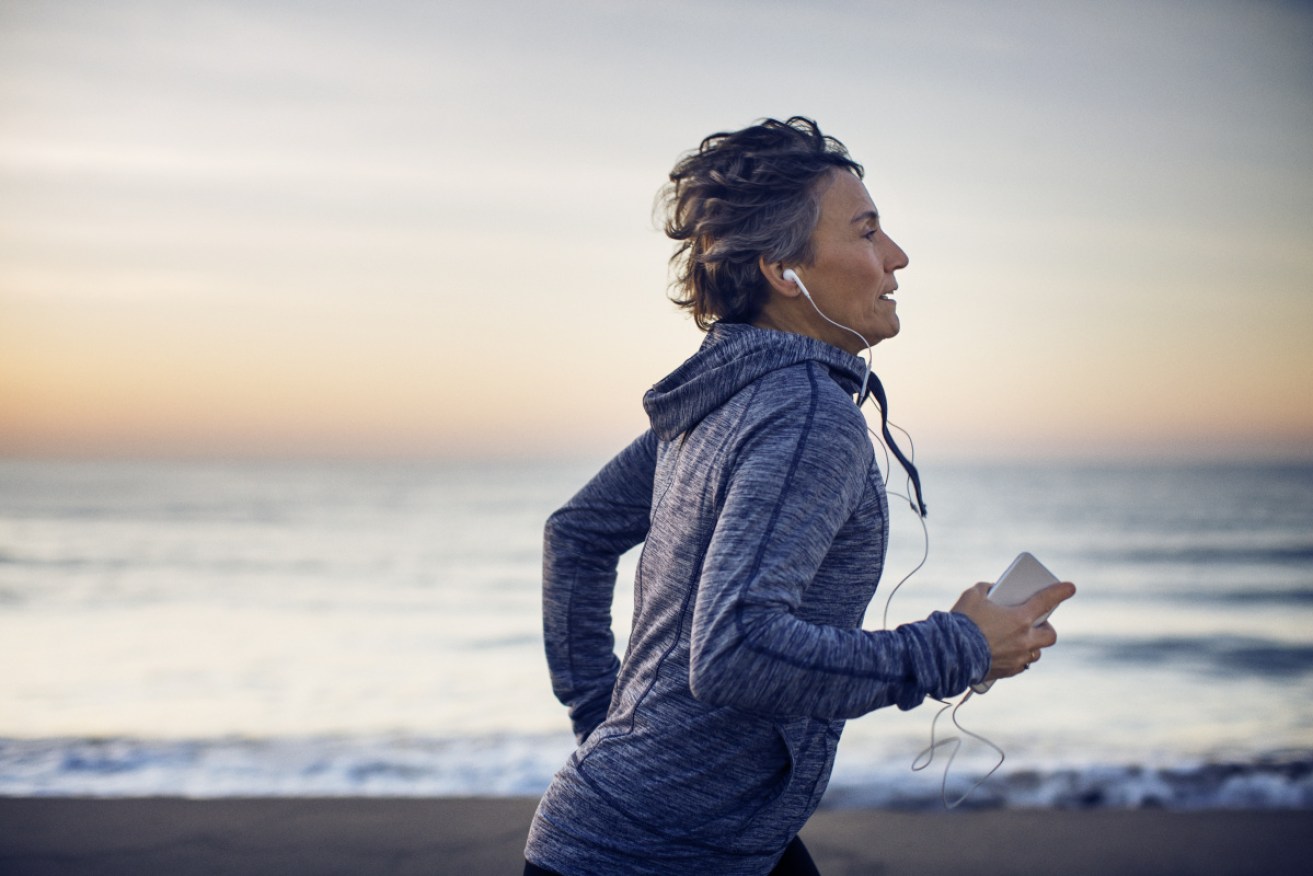Most fitness apps don’t do much to get you healthy, study finds


New research has found many apps struggle to improve behaviours. Health professionals have pointed to instances where they can be effective. Photo: Getty
Researchers have delivered sobering news to fitness aficionados who appreciate the convenience of health and wellbeing mobile apps – a vast majority fall short of improving healthy behaviours.
Combined research from VicHealth and Deakin University revealed only two apps from a list of 348 earned a four-star rating. Three-quarters had a rating of 2.5 or lower.
The research team assessed each app on two scales: functionality (including ease of use and crashing potential), and effectiveness in altering consumer behaviour (based on goal-setting techniques, rewards and ongoing feedback).

Apps that provide ongoing feedback to users were among the most beneficial. Photo: Getty
Dr Fiona McKay, lead researcher from Deakin’s School of Health and Social Development, said consumers should be apprehensive when trusting fitness apps to help them make lifestyle changes.
“While there are some good apps out there, a lot of apps just don’t have the features that will help people to be healthier,” Dr McKay said.
“Most people have a phone in their pocket all day; we think that using an app on a phone is one way to improve health and wellbeing.”
VicHealth executive manager of programs Kirstan Corben said the results were alarming, given more than 30 per cent of Australians use mobile apps to try to adopt a healthy lifestyle.
The apps that kick goals, and those that fail to deliver
The two apps that earned four-star ratings were developed in conjunction with health professionals. They are free to download, but have additional costs for a long-term subscription.

The two best performing apps according to the combined study. Photo: vichealth.vic.gov.au
Quit Genius, by Digital Therapeutics, is an anti-smoking app that, according to the company’s website, uses cognitive behavioural therapy techniques and multimedia to kick smoking habits in the butt.
GoBlue International’s Unwinding Anxiety guides users through video lessons to combat anxious thinking patterns, adding weekly chats with experts and progress tracking via journalling.
Some physical activity apps also rated highly. They included the FitBit companion app, a suite of Under Armour exercise mapping programs, and the My Fitness app by former Biggest Loser coach Jillian Michaels.
Some of the highest-priced apps on the list happened to score the lowest ratings.
A Million Workouts costs $49.99 to download, but lacks features such as social media integration, daily reminders and a robust, app-specific community.
Accredited practising dietitian and Dietitians Association of Australia spokeswoman Anika Rouf said customers should consider an app’s developer before hitting the download button.
“Ensure it comes from a credible source, for example. A lot of them are fully commercial and there are no health professionals involved,” she said.
“Ensure it’s regulated by a health organisation or government, and something that’s Australian or in line with Australian guidelines.”

Health professionals say apps can be helpful in highlighting food that contains allergens. Photo: Getty
Ms Corben said consumers should consider using trial periods before committing to a purchase.
“We recommend people avoid paying a lot of money to download apps – pick one with a free trial period to check if it’s right for you,” she said.
“Also be aware many apps might be free to download but have sneaky costs, like charging you to unlock features.”
How to use health and wellbeing apps effectively
Exercise & Sport Science Australia HEAL project officer Daniel Berkelmans said apps were best used in conjunction with a program designed by an accredited health professional.
He said apps should never be standalone substitutes, but there were benefits in apps that clearly identified goals and allowed users to share progress with friends on social media.
“For those people who already have their goal in place and use apps to track progress and share progress with likeminded individuals, apps tend to be more beneficial,” he said.
“Those who need more guidance to set goals or begin exercise behaviour and integrate them into their lives and identify barriers to exercise, they should see a health professional first.”
Ms Rouf said apps that scanned barcodes and provided allergen advice could benefit food allergy sufferers.
“For someone who coeliac disease, apps like that are really useful because it’s time consuming to read all the little details,” she said.








